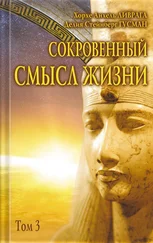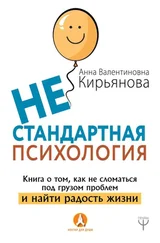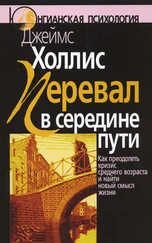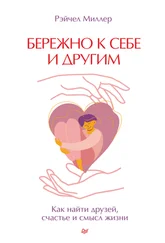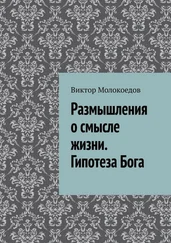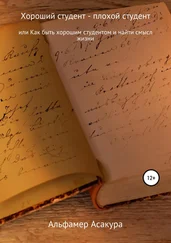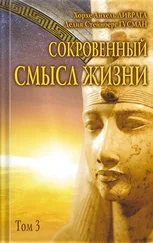Пер. Е. Цветковой.
Leo Tolstoy, Tolstoy’s Diaries, Volume 1184–1894, ed. R.F. Christian (London: The Athlone Press, 1985), 191.
Tolstoy, Confession, 33–34. Note that this particular phrasing is from the translation by Louise and Aylmer Maude used by Antony Flew, “Tolstoi and the Meaning of Life,” Ethics 73, no. 2 (1963), 110–118.
Tolstoy, My Confession, in The Meaning of Life, 2nd ed., ed. E. D. Klemke, trans. Leo Wierner, 11–20. (New York: Oxford University Press, 200), 15.
Jaakko Tahkokallio, Pimea aika (Helsinki: Gaudeamus, 2019).
In Kepler’s “Letter to Mastlin” in 1595. Quoted in James R. Voelkel, The Composition of Kepler’s Astronomia Nova (Princeton, NJ: Princeton University Press, 2001), 33.
This, and other facts about the history of atheism in this paragraph, come from Gavin Hyman, A Short History of Atheism (New York: I. B. Tauris & Co., 2010), 3–7. He notes that among the ancient Greek and Roman thinkers we can sometimes find what he calls “soft” atheism. It was a form of freethinking, where some exceptional individuals proposed intellectual theories that saw the God’s role in new ways or even denied much role for them. But these thinkers were few, typically did not reject religious practice, and didn’t involve a resolute denial of a transcendent realm altogether.
Hyman, A Short History of Atheism, 7.
Tolstoy, My Confession, in The Meaning of Life, 19.
Alain de Botton, “How Romanticism Ruined Love,” July 19, 2016, https://www.abc.net.au/religion/how-romanticism-ruined-love/10096750.
Hyman, A Short History of Athe ism, analyzes on pages 20–26 the transition taking place in the Descartes book.
See, e.g., Maclntyre, After Virtue.
Baumeister, “How the Self Became a Problem.”
Hyman, A Short History of Atheism, xvi-xvii, notes that the world as something to be mastered and controlled and a sense of progress are key defining features of the modern worldview.
Furthermore, the peculiar European political situation was favorable for new ways of thinking. In the centrally governed China, the emperor had the power to set the limits of what one could think aloud. The European elite was culturally united and thus constantly exchanging thoughts, but politically Europe was divided into small city-states and kingdoms. This meant that for a freethinker pushing the boundaries of what one could think, there was always some prince or ruler somewhere who was more liberal and tolerant and to whose principality one could flee if things started to get too heated in one’s present location. I feel that we should not underestimate this historically peculiar condition-cultural unity within decentralized politics in enabling the rapid development of several innovations in thinking in fields ranging from philosophy to astronomy to politics.
Перевод Е. Цветковой.
Of the unaffiliated, roughly one third self-identify as atheists or agnostics (31 %), roughly one third say that religion is unimportant to their lives (39 %), while one-third (30 %) sees religion at least somewhat important in their lives but don’t identify with any particular religion. While people in this latter group might still believe in some kind of God or spirituality, their way of believing is thus not connected to any particular religious group, but rather they believe or don’t believe in their own way. See Pew Research Center, America’s Changing Religious Landscape.
Pew Research Report, 2015. Pew Research Center, America’s Changing Religious Landscape.
The statistic about not believing in God comes from the International Social Survey Programme (ISSP) 2008, quoted in Ariela Keysar, & Juhem Navarro-Rivera, “A World of Atheism,” in The Oxford Handbook of Atheism, ed. S. Bullivant & M. Ruse, 553–585, (New York: Oxford University Press, 2013). The amount of religiously unaffiliated is from Pew Research Center, The Future of World Religions: Population Growth Projections, 2010–2050, Pew Research Report, 2015. As regards the religiously unaffiliated, China, Hong Kong, and North Korea have along with Czech Republic and Estonia more than half of their populations reporting as religiously unaffiliated in the Pew Research Center 2015 data.
Based on the percentage of people who outrightly believe there is no God compared to people who believe in God without doubts in ISSP 2008 survey. See Figure 36.8 in Keysar & Navarro-Rivera, “A World of Atheism,” 577.
Robert D. Putnam & David E. Campbell, American Grace: How Religion Divides and Unites Us (New York: Simon & Schuster), 4.
Taylor, A Secular Age.
Putnam & Campbell, American Grace, 6.
Carlyle, Sartor Resartus, 147.
This is how psychologists define meaning in life. Note that for philosophers, even the question of “meaning in life” typically refers to the objective meaningfulness of a particular life whether that life is “really” meaningful rather than to the person’s subjective sense of meaningfulness.
Note that many analytic philosophers are nowadays still objective naturalists, believing that some form of objectivism can be saved even if we accept naturalism. See, e.g. Metz, Meaning in Life., and Antti Kauppinen, “Meaningfulness,” in The Routledge Handbook of Philosophy of Weil-Being, ed. G. Fletcher, 281–291 (Abingdon, UK: Routledge, 2016). Unfortunately, here is not the time or space to discuss the merits and shortcomings of these attempts.
This sentiment is very much at the heart of Deweyan pragmatist philosophy. See especially Gregory Pappas John Dewey’s Ethics: Democracy as Experience (Bloomington: Indiana University Press, 2008).
See, e.g., the essays “Pyrrhus and Cineas” and “Introduction to an Ethics of Ambiguity” in Simone de Beauvoir, Philosophical Writings, ed. M. A. Simons (Urbana: University of Illinois Press, 2004).
Beauvoir in the essay “Introduc tion to an Ethics of Ambiguity,” trans, by Marybeth Timmermann.
Beauvoir, Philosophical Writings, 291. ni Beauvoir, Philosophical Writings, 293.
I talk about this idea of moral growth and its roots in pragmatism especially in Frank Martela, “Is Moral Growth Possible for Managers?” in Handbook of Philosophy of Management, ed. Cristina Neesham & Steven Segal. Advance online publication, doiao.1007/978-3-319-48352-8-i8-i.
Реверберирующая камера – специальная комната для звукозаписи со звукоизоляцией.
Frankl, Man’s Search for Mean ing, p. 112. Note that this quote is from the 2006 Beacon Press edition of the book.
Pappas,John Dewey’s Ethics, 152.
Читать дальше
![Фрэнк Мартела Wonderful Life. Размышления о том, как найти смысл жизни [litres] обложка книги](/books/390695/frenk-martela-wonderful-life-razmyshleniya-o-tom-k-cover.webp)
